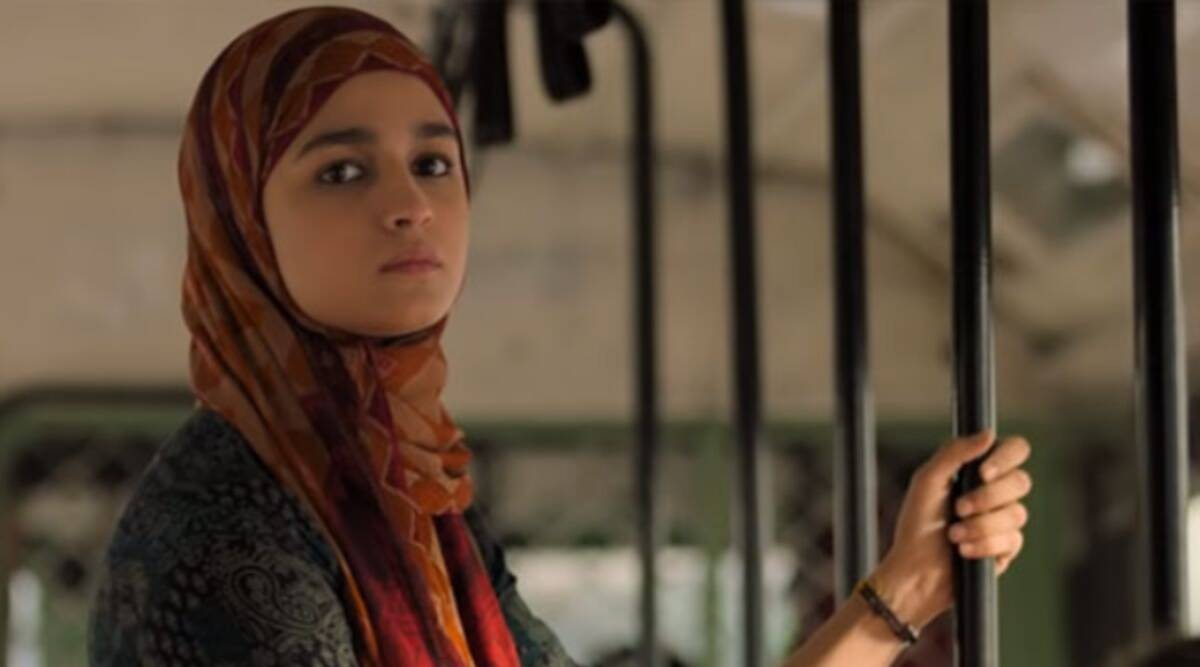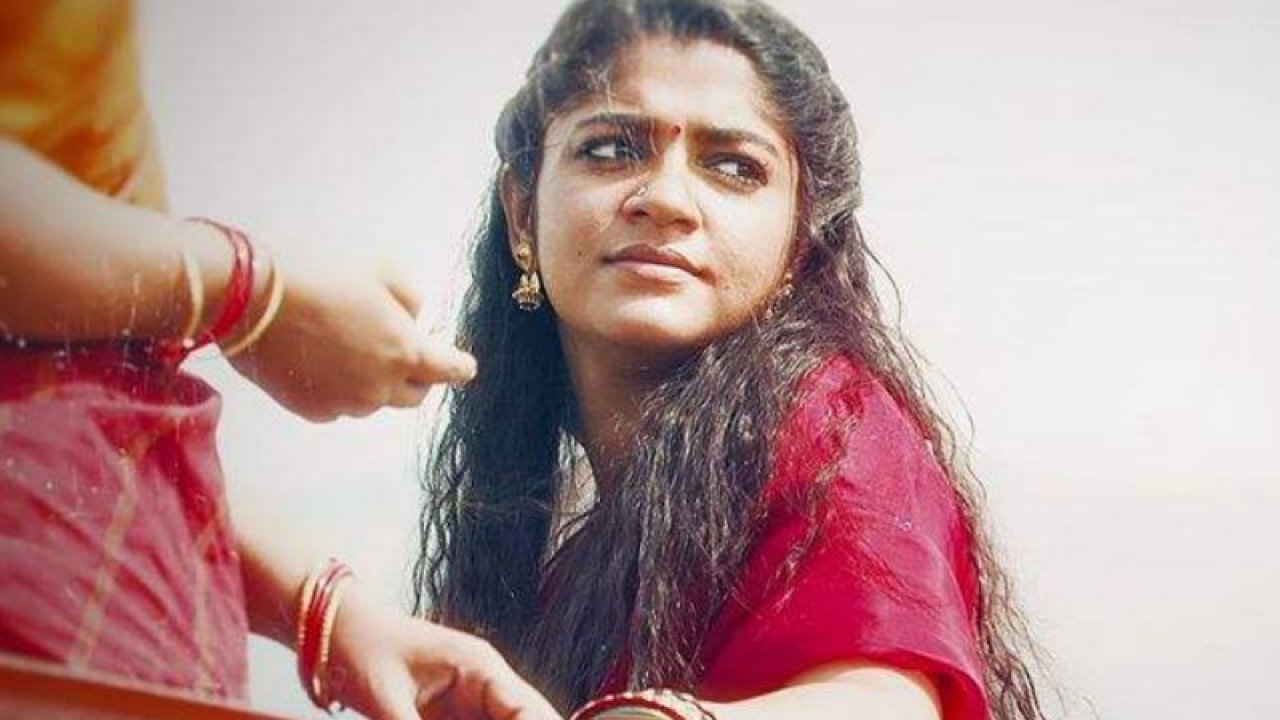Among the many things that are commendable about Sudha Kongara’s Soorarai Pottru (2020) is the characterisation of Bommi (Aparna Balamurali). She is Bommi, not ‘Maara’s wife’ or the ‘hero’s love interest’. You see evidence of this distinction through the course of the film.
Bommi lights up the screen with her presence. She is everything that mainstream female protagonists are largely not: feisty, ballsy, with a mind of her own and with ambitions (which she does not sacrifice after marriage and childbirth). In the very first scene that she appears in, a stranger on the train makes an unsolicited remark about how parents get looked after only by male children, while female children get married and move into another home. Bommi ‘accidentally’ drops a bag on him. It was a huge relief and delight to watch Bommi, largely because of how tired we all are of undeveloped/under-developed female roles in films.
Not the ‘village belle’
Bommi is from a small town, but we see nearly none of the ‘village belle’ stereotype in play. In every space that she inhabits – either within or outside her home, she holds her own. She breaks into dance when she is happy – not in exotic foreign locales, but at home. She dreams big, takes pride in her career, and puts in the work to reach her goal. She mentions time and again that her bakery business is not “small” or insignificant compared to her husband’s airline business.
She is hurt when her husband hesitates to ask her for financial help (although he resists most discriminatory practices, he was still conditioned by a patriarchal society and hence has been ‘taught’ to be egoistic, especially in matters of money) because the pre-marital deal was to fend for themselves as well as each other.
Also read: Bollywood Hypocrisy: Mixed Signals and Faux Feminism
She wears her saree with pride, with a pottu (bindi) on her forehead and long, plaited hair. Her dress code does not drastically change after marriage, from jeans or salwar to saree, a tactic many films have used in an effort to show how a woman has embraced household living and exhibits wifely behaviour along with the mangalsutra and surname change.
Bommi is not just a blazing example of a rooted, strong, and independent woman onscreen but she also quashes what has come to be known as “feminist” characters, especially in Bollywood. She is an example that wearing LBDs, partying hard every Saturday night, and asking for ‘four more shots please’ is not what makes one a feminist.
Feminist films in Bollywood
Bollywood is keen on portraying a certain kind of ‘privileged feminism’ as women empowerment, where the “feminists” are extremely rich, too apathetic, and somehow always ‘loose’ in character (as perceived by our society). I agree that a part of the gender equality agenda includes women’s freedom to choose and follow their preferred lifestyle – to drink or smoke or wear clothes they like or have sexual relations with people of their choice. But it is unjustified to limit the entire scope of feminism to just that because there are several other issues such as financial independence and autonomy in making life decisions. The other problem is that it makes women empowerment an exclusionary idea, where only upper-class, upper-caste women are shown exercising their freedom.
In Tamil cinema, there is a whole bandwagon of ‘feminist films’ that feature strong women roles as well as drive home a message. For instance, 36 Vayadhinile was Jyothika’s comeback film and even before you watched the movie, you had a fair idea it would be about a woman re-discovering herself after a sacrificial ‘family break’. While Iraivi (2016) was a nuanced portrayal of women with the spotlight on their decisions and the conditioning that leads to those decisions, Aruvi (2016) was much fiercer, where the woman was enraged and decided to reign in.

A still from Iraivi (2016).
The downside of ‘feminist films’ is that they are either too niche or too branded. For instance, a movie like Lipstick Under My Burkha attracts only a certain kind of audience and hence has limited reach, despite the powerful message it seeks to convey. Feminist films are important, but how do you reach out to everyone? By injecting doses of gender equality into mainstream movies. A few filmmakers have been doing that in beautiful and subtle ways.
Also read: Close Encounters of the Bollywood Kind
I was floored by some of the scenes in Anjali Menon’s Bangalore Days (2014). The blockbuster film had a lot to offer apart from excellent entertainment. For instance, the scene right before their wedding, Divya’s cousin Arjun asks her what her second name changes to after marriage and mocks it as “transfer of ownership” and in the following scene, she takes a nervous puff from Arjun’s cigarette (because of cold feet before her wedding) and exhales on-stage, next to a puzzled husband. These scenes are both comical and thought-provoking.

A still from ‘Gully Boy’ (2019).
Similarly, Zoya Akthar’s Gully Boy (2019) showed a bold woman by the name of Safeena (Alia Bhatt) who gets into brawls one too many times. In a scene where her parents confront her after she gets arrested and her mom asks her what she wants, she says in the most matter-of-fact tone that she wants to go out, party, wear lipstick, talk to boys – not in secret but in front of them. And she gets thrashed in classic brown-parent-style after that.
I have taken examples of just three popular and contemporary female directors from across Indian cinema: Sudha Kongara, Anjali Menon and Zoya Akthar. If barely a handful of women calling the shots can bring such a refreshing change to our screens by portraying women as they are in real life – flawed, rebellious, passionate, loving and above all, multidimensional, one can only imagine what more of them would be able to accomplish.
Divya is a writer, constantly torn between celebrating life for its little joys and renouncing it for its many oddities and injustices. She has written for The Hindu, Feminism in India and The Times of India (students’ edition) as its star correspondent and student reporter. She has done her Bachelor’s from Indian Institute of Management, Indore.

